“Oh, movies are important and dangerous because we’re the keeper of the dreams,” said Susan Sarandon in The Celluloid Closet, a 1995 documentary about the history of on-screen homosexuality. “You go into a little dark room and become incredibly vulnerable. On one hand, all your perspectives can be challenged, you could feel something you couldn’t feel normally. On the other hand, it can completely misshape you.”
In a flash, Sarandon distilled what makes movies movies. That supposed power has driven decades of censorship and handwringing over what America should and shouldn’t see in theaters, and what kinds of performers the industry thinks can bring it to them. Until recently, it was supposed, those performers had to be straight.
Videos by VICE
Though today there are more out and proud LGBTQ performers, industry leaders, and stories than ever before, there remain untold numbers of actors and actresses who still feel they can’t come out publicly, things aren’t necessarily easy for those who have, and that newfound visibility remains far from perfect.
Why is it so hard to come out in Hollywood? And what will the future of LGBTQ Hollywood be as the internet forces the entertainment industry to think outside the studio system? We asked 18 performers, screenwriters, directors, documentarians, producers, journalists, and more to weigh in.
Interviews have been edited for length and clarity.
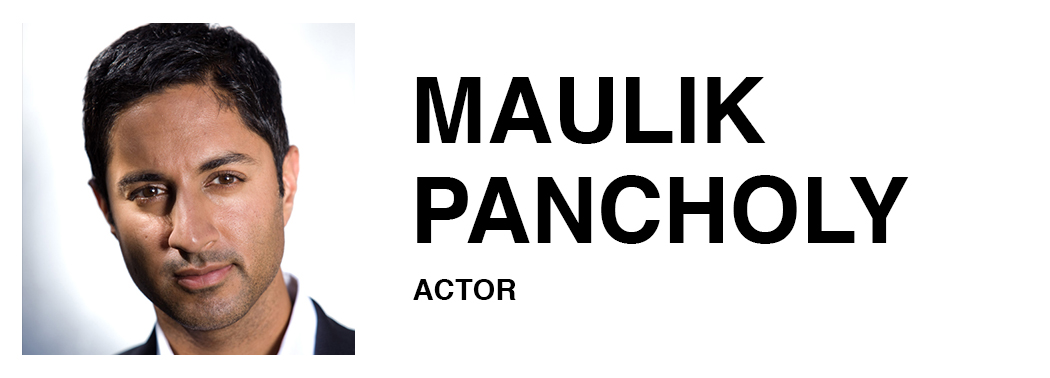
As actors, those personal fears or childhood scars don’t go away just because you’re suddenly on a TV show. So I think actors who may not be out are also just struggling with personal demons that may have nothing to do with their careers. Except that now you’re talking about being out to millions of people at once, which only amplifies all those fears.
It’s possible that being out has affected the kinds of roles that have come my way, but I honestly haven’t felt that. In the last few years, I’ve played several straight characters. And I’ll tell you that not feeling like you have a secret on set that you have to protect in order to play the role has allowed me to bring way more of myself to those parts and to feel 100 percent more comfortable in my skin.
Maulik Pancholy played Jonathan on 30 Rock and is a voice actor on shows including Phineas and Ferb and Sanjay and Craig. He will appear as Nambue on Star Trek Discovery. As told to Matt Baume.

I believe that people remain closeted because they’re afraid of losing opportunities, which is a fancy way of saying they don’t want their identity to mess with their money. Hollywood is really a game of façades. Everyone in this town has a narrative, and it’s all about perception. If being straight is a part of your façade, if that’s a part of your brand—well, you don’t want to fuck that up by having the public find out your truth. I think people are afraid of everything they’ve built falling down around them. Especially if you’re a person of color.
There aren’t many women of color who are out. Being black and gay is still taboo in the black community. There’s still a shame associated with being gay—and that’s not going away anytime soon. We’re making progress, but it’s slow.
That said, I think being open about sexuality has actually helped me! My gayness, my blackness—me being proud of where I come from is what makes me special. Sure, I could’ve taken a different path, and maybe I would’ve had a different career. But I like being my authentic self; I like being a beacon of light for little girls who are struggling with their sexuality and are afraid to be themselves. That’s more important to me than making a lot of money or making certain people feel comfortable.
Lena Waithe is an actor and screenwriter best known for roles in Bones and Master of None. Showtime recently picked up her drama The Chi, a forthcoming series inspired by her childhood in Chicago. This summer, Master of None returns to Netflix for its second season. As told to Jon Shadel.
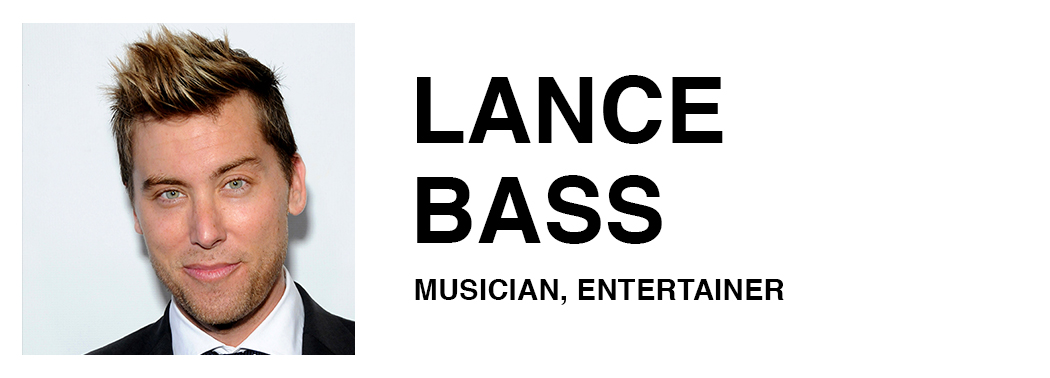
I came out at a time in my life where I knew there wouldn’t be another NSYNC album. I wanted to keep it private until I knew I wasn’t going to influence anyone’s business, meaning my four best friends. I was in an interesting situation, where 90 percent of my market was female, and teenagers at that. If I was going to rip the Band-Aid off, I was afraid it would be received as a betrayal and just ruin NSYNC. You’re constantly told things: “Don’t be seen with a beer in your hand, don’t be seen with a girlfriend.” They didn’t need to say “don’t be gay.” It’s implied.
My business completely changed after coming out. I was working on a sitcom, I had projects I’d been working on for years, and when they had to put the “gay” label on me, all those projects went away. My career went from being asked to do tons of stuff to only being asked to play gay stuff. It’s very disappointing; you go from doing something as big as NSYNC, having a huge team around you and getting amazing offers, then you share a personal thing and it completely changes the way people perceive you. You become part of a minority. Business is business, and when you’re part of a minority, there’s not a lot of money behind that, and they move on to something that will make them money and you get left behind.
Lance Bass is a member of NSYNC and was a daily panelist on NBC’s The Meredith Vieira Show. He has won numerous awards in his career as a musician, appeared on Broadway in Hairspray, published a memoir titled Out of Sync, has appeared on Dancing with the Stars, and hosted two shows on Sirius XM. As told to Jessica Ogilvie.

I recently watched Ellen for the first time, and I never watch Ellen. I’m like, “How has this sort of butch, masculine-presenting white woman—who’s been totally out of the closet for the last 15, 20 years—taken over daytime television to the degree where there are slews of white women clapping and oohing and ahhing at her when she dances in the aisle?” You know, who needs to come out when Ellen’s coming out every day? I think that for me, what I’d like to see are those intersections of coming out around my class, my race.
I think if coming out is not done as a spectacle, and if it’s done as an act of coalition building and intersectional allegiance, then yes, we’ll see more of it. I think as people wake up and stumble around and wipe the sleep off their eyes, I think we’ll feel the pinch to need to come out or recognize who’s out and grab onto them to do something more tightly and more powerful.
Cheryl Dunye is a filmmaker and assistant professor in the School of Cinema at San Francisco State University. Her 1996 directorial debut, The Watermelon Woman, is widely considered the first feature film directed by a black gay woman. Her forthcoming film, Black is Blue, is due out in 2018. As told to Jennifer Swann.

Growing up, I never really came out, but everyone sort of knew. There’s an old Spanish saying that’s like, que lo que ves no necesitas preguntar, “that what you see you don’t need to ask.” It’s funny because it’s true. I came out more for my mom than myself, so that she could be comfortable.
I never felt pressure to suppress my sexuality from my agent or anyone else, and I don’t shy away from it. I feel like because I’m comic relief, I’m a sidekick, I’m endearing—it’s like I’m everyone’s best friend. The roles and characters I’m fortunate enough to bring to life are more forgiving. The difference is that when a muscular, model-esque Adonis comes out as gay, then they lose their demographic and their agents drop them. I have those friends, and I know they’re gay, and I would never out them. That’s their journey, their life. It is a different topic for them.
I get messages from people like, “Oh my God, you’re Latino, you’re short, you’re round, you’re not the stereotype.” I’m not cookie cutter, that’s for sure. But I made a career by owning who I am. Being short, stout, gay, Latino—statistically, I shouldn’t be where I’m at. But I’m working in Hollywood because I want to be that example. When I grew up, I didn’t see people who looked like me, but now I’m that person. I want kids to look at the TV and be like, “Oh my God, there is hope. I can do this. I can be this.”
Harvey Guillen is an actor known for roles on SyFy’s The Magicians, ABC Family’s Huge and The Internship. As told to Ian Daniel.
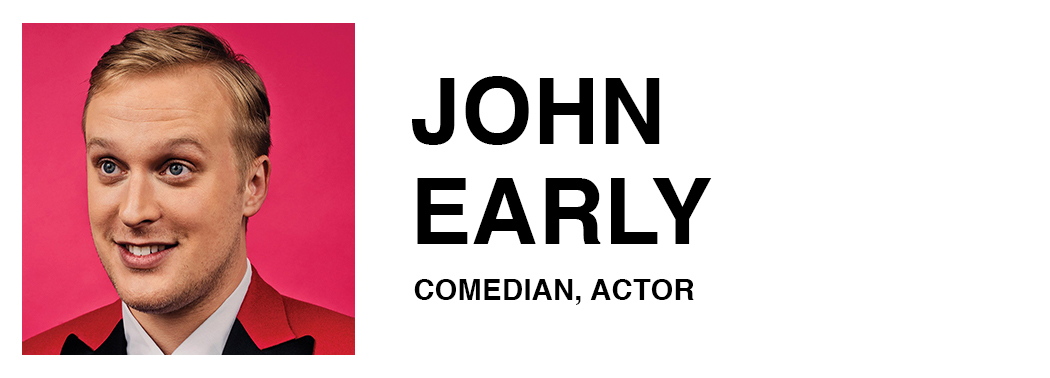
I think the closet is absolutely generational, and I totally understand the importance of coming out, but what I don’t understand is people my age ganging up on the Jodie Fosters and John Travoltas of the world, who grew up in the spotlight. They never had a normal youth that would have given them the freedom to make those discoveries in a private place. And coming out when they may have naturally wanted to do it would have been dangerous—not just for their careers, but socially, and maybe just interpersonally. And if your public image is part of how you make money, or if that’s where you derive your self-worth, then it might feel a lot more dangerous to you than it actually is to make a big change in that image. I think we need to be a little more forgiving of those who grew up in a totally different time, and whose lives are just completely distorted due to their massive wealth and fame.
And also, the sad thing is, if John Travolta came out, I do think it would help his career. I think that he and the Kevin Spacey’s of the world are living under this kind of 80s assumption of what acting is and they’ve got to be able to play straight to get the straight roles, but I think that we’re actually living in a far more personal, confessional time in entertainment. We’re living in an era of reality television and direct-to-camera confessional YouTube stuff, so it’s a totally different time when everyone is—major stars, you have access to their unfiltered minds through Twitter—so it would actually be beneficial to their careers. Especially among young people, like literal teenagers who over 50 percent of them don’t identify as straight now, who do not know who those people are. I actually do think it would be brilliant PR move for them to come out this late in the game. I just really think it would shake shit up a little bit for their careers. I don’t think anyone needs John Travolta to still be this, like, beacon of masculinity.
John Early is an LA-based comedian and actor who can be seen in TBS’s Search Party, Netflix’s The Characters, and his Vimeo series alongside co-creator Kate Berlant, 555. As told to Tyler Trykowski.
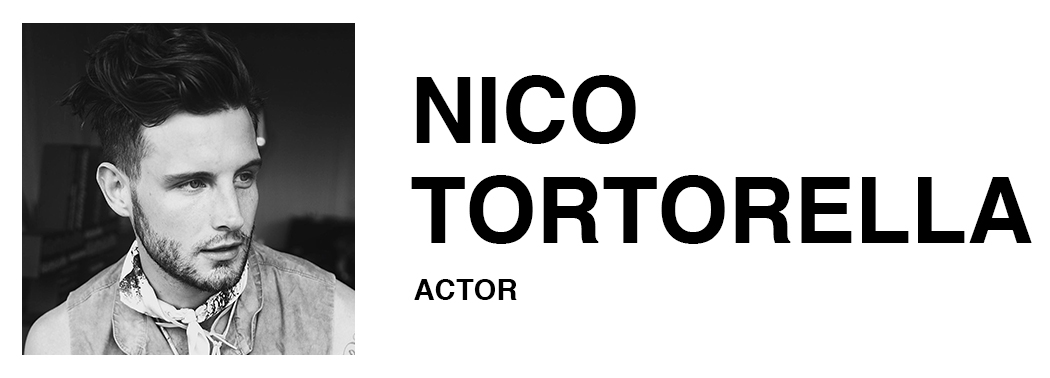
I identify as a human being before anything else. Although I don’t believe in labeling myself with one word, right now I’m into using the word “bisexual” because of its radicalness in our generation. There needs to be more visibility in all things surrounding that word, and I am here for myself and for that community. But I do not believe in the binary of sexuality or gender.
I joke that I was never in the closet, I wasn’t even in the house. I’ve always done my own thing and been comfortable in it. But through working on myself and my sobriety, I’ve gotten a lot more comfortable with who I am and what that means on a public level. I have a podcast where I talk to people about just that.
I’ve always said that if anyone was going to be able to pull off playing in the spectrum—be able to pass as straight on television and be whoever I want in my personal life and still get the 15-year-old in Missouri to have a poster of me on her wall—I was going to do it. And at the end of the day, that’s what it comes down to: Is your name going to sell tickets? That’s it. I also realize this is a result of privilege I have, stemming from how I look and various other reasons.
I think the system itself is changing so fast right now, in the sense that there are new networks being made every single day. The amount of product for actors right now is exponential and raising every single day. I mean, Netflix is going to do 100-plus original shows next year? That’s insane. If you’re already good at your job now, if you’re already established, you’re going to keep working whether you’re gay, straight, transgender, bisexual, or, like, fucking Casey Affleck. You’re going to work.
Nico Tortorella is an actor best known for roles in Scream 4, TV Land’s Younger and FOX’s The Following. His podcast The Love Bomb, in which Tortorella “explores love and the labels associated with it,” premiered in September. As told to Ian Daniel.

We’ve been having this conversation about diversity in Hollywood for a while—though not long enough—but certainly it touches on women and people of color and people behind the camera and in front of the camera and LGBT people and trans people, and it’s all connected. I do like to see [actors] come out and be out, because it just adds more complexity to what kinds of roles and range they can play, and what we all accept and appreciate as the complexity of human experience. So to kind of minimize that or sort of say, “Well, let’s not make a big deal out of queerness,” I think is kind of conservative.
I do think there’s a fear of being typecast as gay, and I wouldn’t say that that fear is baseless. There still is a double standard to some degree, although I think it is sort of dissipating. But the experience that we’re coming from is that Sean Penn can play Harvey Milk, but a gay actor has less flexibility to play a straight leading man, for example. I do feel like that’s sort of changing, and we’re in the middle of an evolution, and the only way it’s going to change is for people to stand up and come out and continue to express the diversity of the human experience and be sort of uncompromising about that. And if there’s enough well-loved actors and celebrities who are authentic about who they are, people will still want to see them.
Rhys Ernst is an LA-based writer, artist, and filmmaker who serves as a producer on the series Transparent. Last year, he released Relationship, a private photo diary documenting a six-year relationship with the artist Zackary Drucker, in which both transitioned genders. The documentary mini-series he executive produced, We’ve Been Around, was nominated for a GLAAD Media Award this year. As told to Jennifer Swann.
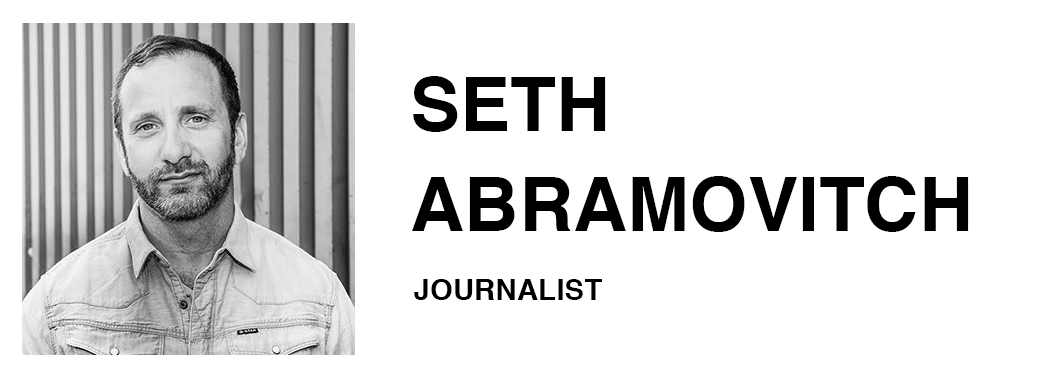
It used to be when people heard I worked in Hollywood that the first question out of their mouths was, “Who’s gay?” But I don’t get that question much anymore. I don’t think people are as obsessed over sexuality like they once were.
For a while, it was the glass closet—it seemed hardly anyone was coming out. But now that more major celebrities have, it’s made it less of a thing. It’s not as scandalous or forbidden. It’s not as titillating to think about who is or who isn’t gay. Take Kristen Stewart’s recent Saturday Night Live monologue—the fact that she said she was gay seemed almost secondary to Trump’s obsession with her. I just don’t think sexuality carries the same scandalous weight that it used to.
That said, I see both sides of it—coming out is a very personal journey. And even once you’re committed to doing it, you can botch it in a lot of ways. I think the most in-your-face coming out in recent years was Ellen Page, and I interviewed her about that. She got on the stage at this human rights campaign event in Las Vegas and announced to the world that she was gay. But then you have what Jodie Foster did at the Golden Globes. She sort of gave a coming-out speech, in which she never said she was gay. It seemed like she was doing these acrobatics to not have to say it—but still say it. Once you’re going that far, just say it.
It’s personal, sure. But if a celebrity came to me for advice, I would encourage them to come out openly. It still helps people to hear it—to hear the words “I’m gay” or “I’m lesbian” from a public figure. Especially for kids being bullied in schools and those in states like Texas and North Carolina, where these discriminatory bills are being passed.
As senior writer at the Hollywood Reporter, Seth Abramovitch has extensively covered the entertainment industry, profiling celebrities from Ellen Page to RuPaul to Anderson Cooper. As told to Jon Shadel.
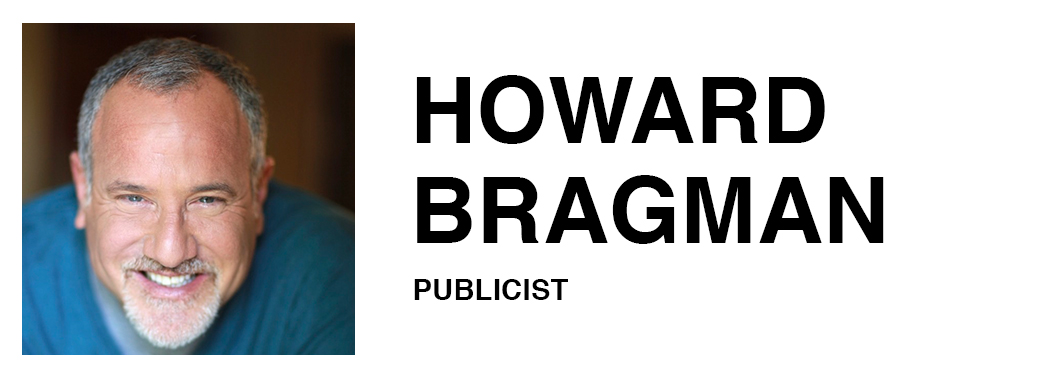
I still believe that the single most important act there is for LGBTQ people is coming out. If every gay person in America came out today, people would understand the depth of our power. But we’re getting there, too. We’re getting there. And one of the reasons we have that kind of power is because we have come out in such great numbers… Traditional PR is one way [for celebrities to come out], and I’ve done it all sorts of ways with my clients. It depends on the circumstance. You have to understand, when you take somebody out, there has to be a strategy. Am I just coming out to live a true life? Is there a commercial venture associated with it? You have to determine the what and the why and then build from there.
Years ago, in 2010, I had a deal with A&E to put a show together called Coming Out, where we were actually going to take celebrities out of the closet and follow their journey. It proved, at the time, to be un-castable. I just couldn’t get the caliber of celebrities I needed to come out. But the irony of the whole thing is that so many of the people who were approached are now out. I approached [Titanic actor] Victor Garber, and I approached Tuc Watkins, who’s a soap opera actor, and I approached Jonathan Bennett from Mean Girls, and it wasn’t quite right for any of them at the time, but they’re all out now. So that’s a very good measure to me of how far we’ve come.
Howard Bragman is the founder and chairman of Hollywood PR agency Fifteen Minutes. A publicist with more than 30 years experience, Bragman is known for helping celebrity clients including country singer Chely Wright, Bewitched star Dick Sargent, and more recently, Michael Sam—the NFL’s first openly gay football player—come out of the closet. As told to Jennifer Swann.

I think when you compare movies to television, there’s a real split in diversity of all stripes. Yes, we saw more people of color lead prestigious films in the past year—the box office reflected it—but there’s still been a conservative retrenching when it comes to who ought to lead a film, and that’s been motivated in large part by the global audience. If it weren’t for people holding studio executives’ feet to the fire, we wouldn’t be seeing a whole lot of people other than generic white guys in movies. And we still do.
But on television, you have auteurs like Shonda Rhimes and Lee Daniels, who have proven they can draw audiences for shows that aren’t just white-guy procedurals. As a result, you see more gay characters and actors on television than in movies. There are a couple reasons—the most famous actors to come out as of late are television actors, predominantly. And there are also so many channels, all of which are looking to get into original programming.
Really, if you’re a gay actor, now is the time to be out, because there’s plenty of work out there. Television is so back, and there are so many more shows now that it provides for more of a safe space for actors to come out. I’m not saying that someday you couldn’t have a comic-book superhero come out in a movie. I’m sure that will happen at some point. But with the pace it’s taking those giant movies to even produce an incidental gay character, I just don’t think that’s their priority. Most television shows at this point at least have a gay character, whether it’s regular or recurring or a guest star. It’s really rare for a new television series to have not touched on that in some respect.
Kyle Buchanan is a senior editor at Vulture, where he covers the entertainment industry. As told to Tyler Trykowski.

The whole notion of this kind of “tearful confession”—you know, you go on Oprah and reveal your truth and all that—kind of presupposes that it’s a really big deal, that it’s something that’s going to be really challenging to people. But that’s just not the case anymore, for the most part. I don’t think audiences really care as much, and in this day and age, when there are so many out celebrities, when gay marriage is legal… there’s just not that need. I think the default is kind of like, OK, so what?
With trans people, there are two different situations. There’s the situation that Caitlyn Jenner and Lilly Wachowski went through, where they’re already known in the public as one gender, and they have to go through the coming-out process. There’s no way to do that privately, obviously, because your appearance has to change so much. So that’s really difficult, and I think that’s part of the reason why Caitlin waited so long to come out. The other case is that of people who transitioned a while ago and are just seen as their gender, and people today don’t know about their past. So there could be people in the public eye who are waiting to come out as trans.
Jen Richards is an LA-based writer, actress, and producer whose web series, Her Story, was nominated for an Emmy last year. She was a series regular on E!’s I Am Cait and will appear in the upcoming CBS show Doubt and the CMT series Nashville. As told to Jennifer Swann.
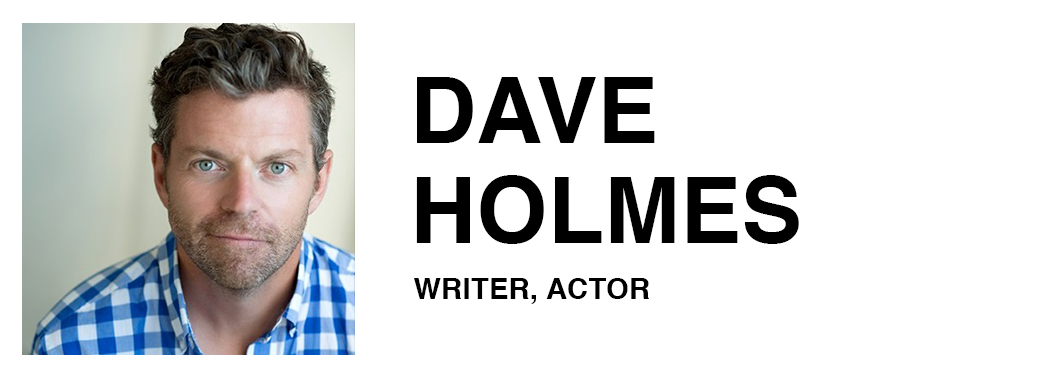
Very few people were out when I came out in 2002, and that’s kind of why I wanted to do it. It would have been huge for me, as a 13-year-old, to watch an out-gay person on TV who was like me—someone who was nerdy, and not especially fashionable, and into music. That would have been mind blowing to me.
It’s way easier to come out now, because everybody has to be a 360-degree public figure these days. You have to let people into your personal life on social media, so it’s easier to incorporate it into your persona. You don’t have to force a magazine to do an interview with you anymore—you can just be yourself online.
The way that people make careers in the entertainment world today is completely different from how it was even five years ago. You can kind of steer your own ship through this world. It’s not like the studio system. People don’t have traditional, predictable careers anymore. You can kind of make your own way, make your own thing, and live pretty well in this industry. There’s a growing middle class in the entertainment industry now, and it’s made up of people who defy categorization, who are writers, and performers, and sort-of-comedians but not really. You can kind of do whatever you want, so there’s no reason not to incorporate your sexuality into that. And I think it’s been a good thing for me. It’s always been one less thing to worry about.
Dave Holmes is a writer, actor, and former MTV VJ. He writes for Esquire and hosts the podcast International Waters and the Friday Forty live show at Meltdown Comics. His latest book, Party of One, is a memoir about music, coming out, and feeling weird. As told to Matt Baume.

I won an Academy Award in 2010 for my documentary about a severely disabled singer from Africa, Music by Prudence. I came out in that film. And I got no calls from Hollywood agents after. Not one. No one even inquired. It just felt like, with me a black gay man, they weren’t interested in the stories that I wanted to tell or my voice. And I know that straight white documentary directors who weren’t even getting nominated were getting lots of calls. For me, it was just, “OK. That’s Hollywood.” Hollywood has lots of problems with race and homophobia, and it’s not like I expected anything different to come out of it.
I don’t think the doc world is at all involved in the Hollywood system. We are very much outsiders, our own community, and we’re accepting. The doc world has its own issues, and it also has a long ways to go, but it’s very different from Hollywood. When I look at Hollywood as someone who’s sort of an outsider, it’s pretty shocking. It amazes me in this day and age that it’s still major news for an actor to come out, and that there are still closeted actors. And not only actors but producers, directors. I just don’t understand why. Maybe if someone’s a romantic lead, and they feel they will lose their audience, but I don’t think the box office has shown that. An actor’s an actor. He’s acting. It doesn’t matter if you’re gay or straight or what your sexuality is. It’s mind-boggling that Hollywood still thinks this way. It likes to think of itself as progressive, but I think it’s quite conservative.
Roger Ross Williams is a documentary director and writer. He won an Oscar in 2010 for Best Documentary Short Subject for his film Music By Prudence and has directed several notable short and feature-length documentaries, including last year’s Life, Animated, which is nominated for an Academy Award this year. As told to Ian Daniel.
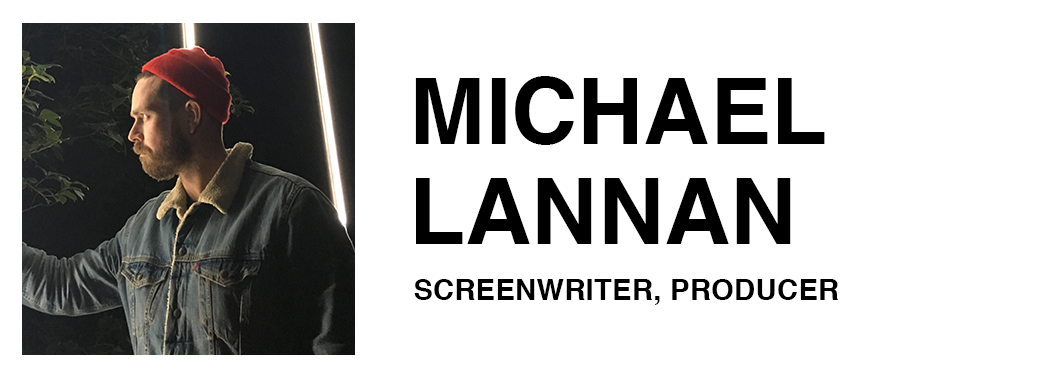
There’s a lot of fear in Hollywood: Executives are afraid of losing their jobs; networks are afraid of losing advertising revenue; writers are afraid of getting fired; actors are afraid of losing fans. This keeps everyone second guessing themselves and avoiding anything they consider risky.
In fact, before I sold Looking to HBO, I had successful, knowledgeable people telling me not to pursue the project because it wasn’t “commercial enough”—they said that nobody would want to do it because it was all gay guys.
And a few funny things happened when we were casting the show. Some people would be begging to come in for an HBO series, but then they’d mysteriously disappear after they read the sides and saw it was gay stuff—not just straight actors, but gay actors, too. Other times, an actor would come in and say, “I think what you guys are doing is really brave.” Brave? Only a straight person would call a gay show brave. Even so, it’s hard to generalize—straight actors like Raúl Castillo and Frankie Alvarez in Looking can dive right in and learn to rim with the best of ’em.
So things have changed a lot since I started in the industry 15 years ago—the world is different, and so is entertainment. Hidden and systemic problems do still exist, but things have definitely improved. Like, recently, a straight guy who works as an agent told me, “I made myself watch your show until I didn’t think dudes kissing each other was gross.” I guess that’s a good sign?
Michael Lannan is the creator and producer of HBO’s Looking, a dramedy series that focused on the romantic lives of several gay friends in San Francisco. Looking: The Movie aired last July. As told to Jon Shadel.

When it comes to the closet, you are really talking about huge, bankable film stars—someone who has a lot to lose. That’s the only door you are really potentially closing for yourself. You might have a career if you come out, but you are not considered for big tentpole franchises, action movies. You’re not that symbol of masculine, swashbuckling fantasy that hordes of young men are going to buy tickets to and believe it might be them in the movie.
You understand the pressure on younger stars who are on the cusp of what could be a good career, a ten-year run and big juicy action parts. Overseas markets are increasingly important, and there are countries where that’s going to hurt the foreign box office. So it becomes, Will I get any of this if I’m honest?
I think it changes with age. Film stars in their 20s through 50s, when they think they’ve got something they can monetize, don’t want to do anything to risk being the biggest possible star. You get the sense that they’re saving being gay as a hobby for their retirement once no one cares who they’re fucking anymore.
It’s different behind the scenes. I’ve been out since high school; I barely recall being in. I’ve not heard a story about a writer not getting a job because he was gay. I’m not saying it doesn’t exist—I would never allege that there aren’t still plenty of people coming up against an invisible wall—but I just haven’t experienced it myself. People are more concerned with the quality of your work.
Joe Keenan is a television writer, producer, and novelist. He is best known for his work on Frasier and Desperate Housewives, and for his three novels, Blue Heaven (1988), Putting On the Ritz (1991), and My Lucky Star (2006). As told to Jessica Ogilvie.
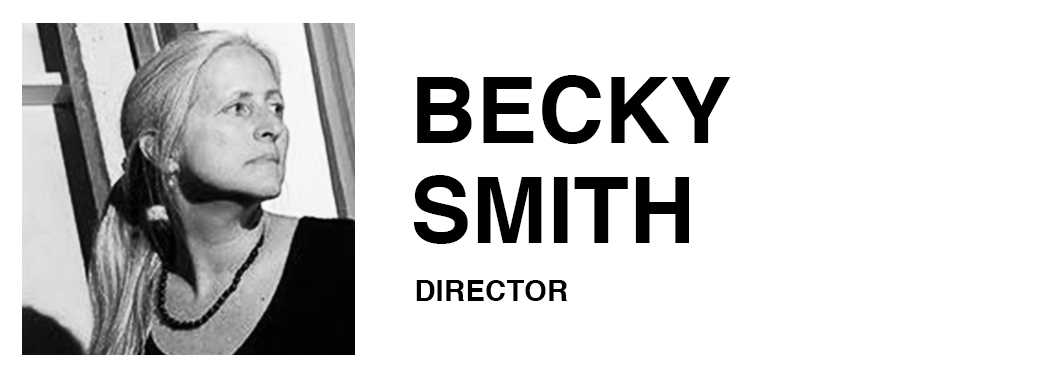
I don’t think there is a political or moral stance in Hollywood to marginalize LGBTQ people. Instead, I think there’s a fear that advertisers or audiences might resist or give negative feedback in response to someone’s sexuality or gender. It’s the entertainment business—the dollar is the bottom line, so it’s all about perception and what an audience will accept.
I am both a filmmaker and an educator. I have many LGBTQ students, so I know the vibrant and healthy dialogue that comes from telling the stories of marginalized people. But I think there is a corporate fear that “America” will not accept diversity. This is also an industry primarily run by relationships: Who knows whom? Whose father was in the business? Who went to the “right” university, was in the “right” fraternity?
These dynamics—corporate fear and the nuances of this “relationship business”—exclude many: LGBTQ people, people of color, women. Take gender issues. There’s a deep and pervasive prejudice about women’s capabilities as directors, and that’s been a monumental stumbling block. It isn’t changing much. In the Directors Guild of America, the next highest percentage of employment after white men is African American men—not women, or white women.
There are actually more lesbian than straight-identified women who are actively employed as directors. I muse that perhaps male executives think that queer women are somehow more relatable because of the misconception that they fit more into a “male” paradigm.
Becky Smith is professor and vice chair of production at the UCLA School of Theater, Film, and Television. Smith has directed numerous films and TV series over her prolific career, including Bravo’s Emmy Award-winning Queer Eye for the Straight Guy and the documentary series Gay Weddings. As told to Jon Shadel.
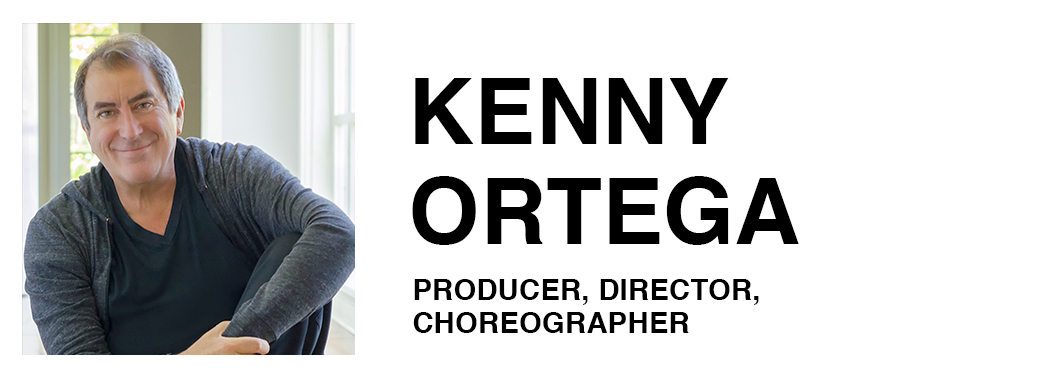
In 1970, in Spartanburg, South Carolina, I played a bisexual character in a musical, and it went against the tastes of the local chief of police. I was arrested, illegally, and faced a potentially very harsh jail sentence. It was uncovered that the whole thing was illegal, and of course, I was released, and there were no charges or anything. It was a huge win. But it was prejudice that put me in that situation. I had traveled to enough places back then to know that gays were not only being harassed, they were being imprisoned. Forget about whether you could get cast; it was whether you were going to have freedom. There were things happening in the world that were more frightening than whether I would get the next job.
Of course, more people are out today. And those who have been out there on the front lines before us, who have risked their lives and reputation, who have done everything they can to give voice to the LGBTQ movement—I think they have broken us through in ways that make it easier for more people to come out and lend their voice and create a larger voice that is now refusing to bow down.
My father used to say to me, “Don’t get angry, get better.” He meant it in terms of when I lost out on an audition, but I started thinking, “Just keep working on yourself, and ultimately you’ll be able to rise above.” And so I didn’t let it make me afraid that I wouldn’t have a career.
The only advice I would give to closeted entertainers today is the advice I took for myself: It was lonely and it was scary and it was dark and I was unhappy, so be true to thine self. You’re not going to be happy living in the dark. You have to come out into the light to have personal happiness.
Kenny Ortega is an award-winning producer, director, and choreographer. His credits include Hocus Pocus, High School Musical, and Michael Jackson’s This is It. As told to Matt Baume.
Follow Matt Baume, Ian Daniel, Jessica Ogilvie, Jon Shadel, Jennifer Swann, and Tyler Trykowski on Twitter.
More
From VICE
-

(Photo by Zinkevych / Getty Images) -

Screenshot: Akupara Games -

Orange City Police Department -

Niels van Iperen/Getty Images
